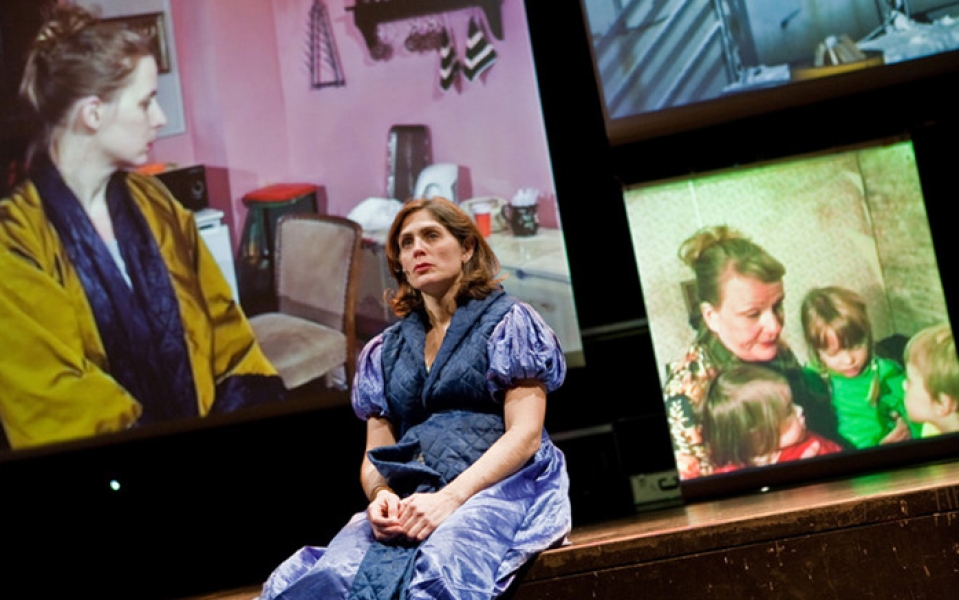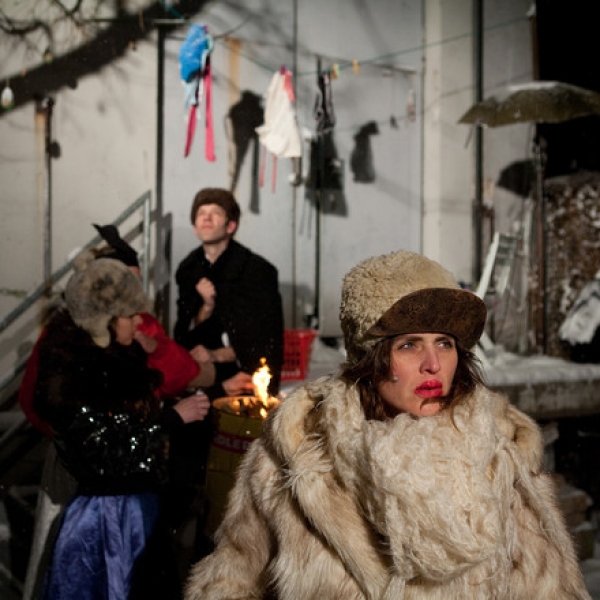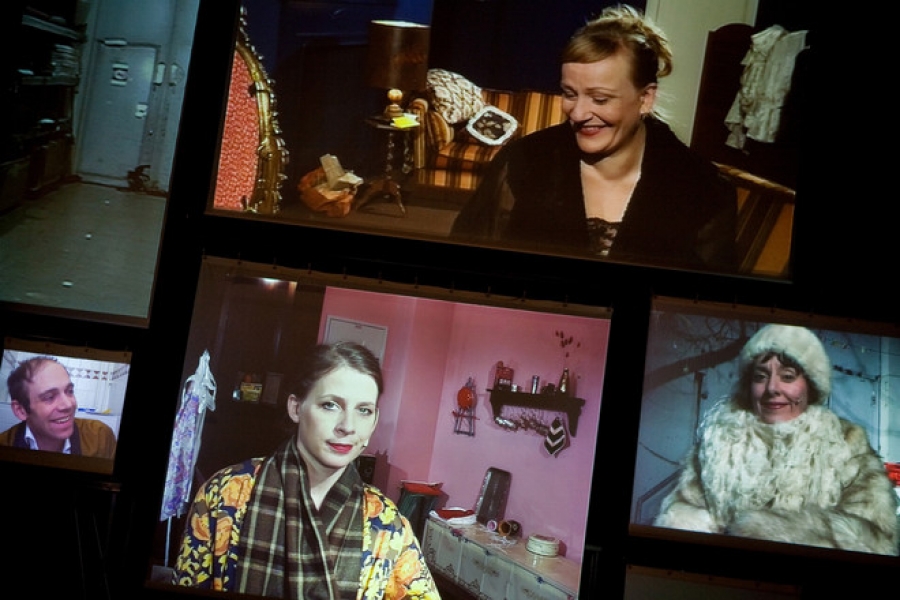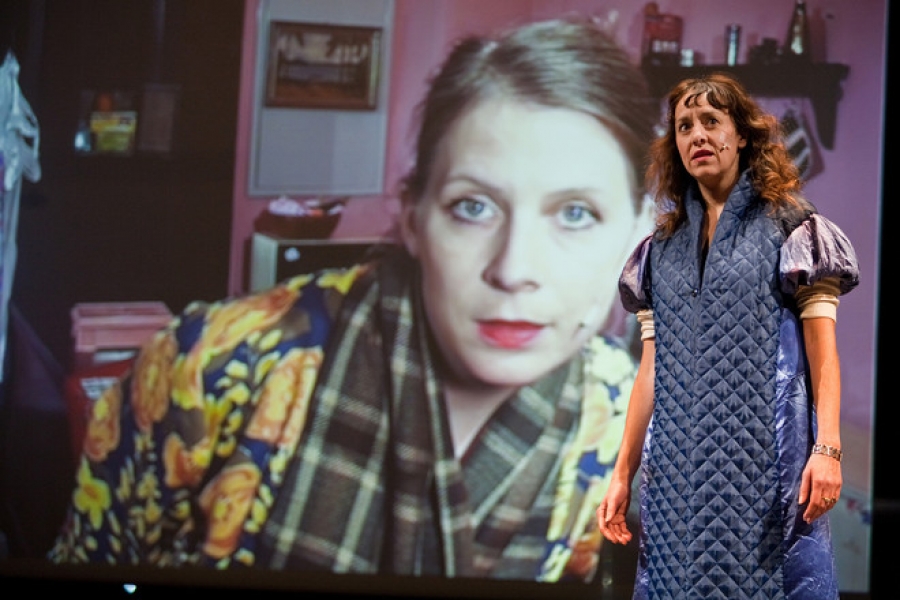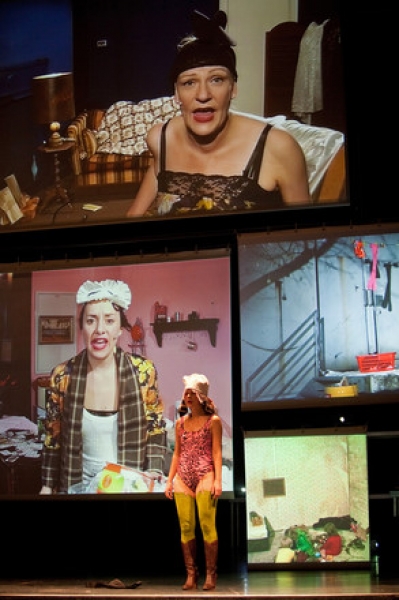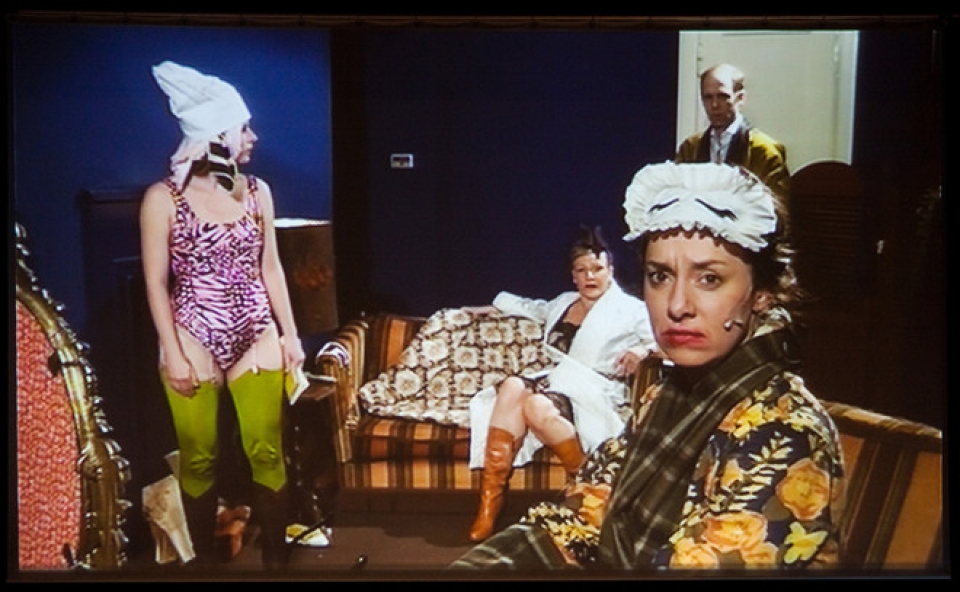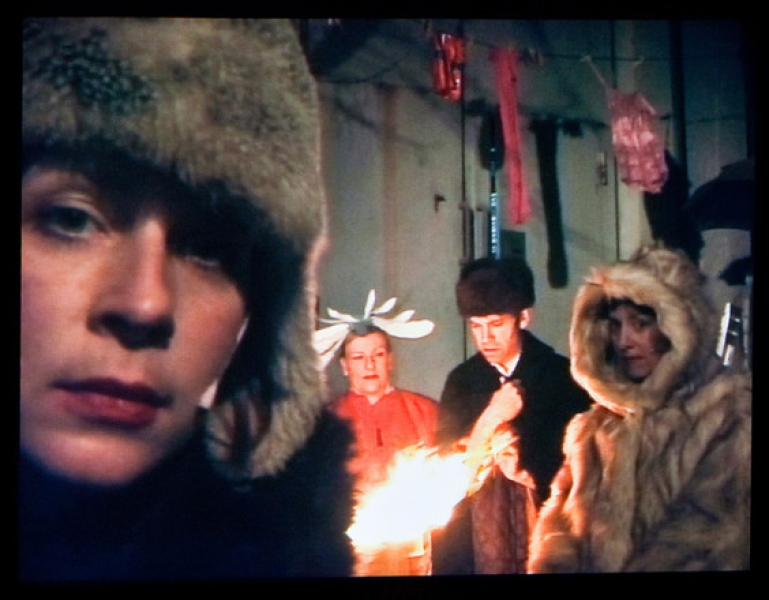7 Sisters
Now they are having children: a retreat into the private, an obsession with feminity, a narcisstic self-fulfillment trip? These women were never interested in the historical dimension of their existence and their freedom. Nor have they ever had pity with the generation of their mothers, the subjects of the second wave of feminism. Now no one has pity with them. The movement has petered out, emancipation has deteriorated into a private success story. What have these women achieved, who are they? Where do they want to go? And is that still possible?
Four She She Pop performers delve into Chekhov’s drama “Three Sisters” and now mingle with the staff of this satire in order to establish a sisterhood. They wander through Prozorov’s house – the theater itself – in search of the salon: where is the room, the social space where individual worries and sensitivities can be recognized as social circumstances? Where is the room in which the analysis of their living conditions can be condensed into shared demands and concepts?
This piece is about women and their relationship to work. The phantom pains of a generation of postpolitical isolation. A group portrait based loosely on Chekhov.
Credits
Concept: She She Pop. With: Sebastian Bark, Johanna Freiburg, Fanni Halmburger, Lisa Lucassen, Mieke Matzke, Ilia Papatheodorou and Berit Stumpf.
Assistant:Kaja Jakstat. Stage: Sandra Fox. Costumes: Lea Søvsø. Video and Light: Jürgen Salzmann. Sound and Music: Jeff McGrory. Production and PR: ehrliche arbeit – freelance office for culture. Company Management Elke Weber. Assistant Stage: Janna Schaar. Second assistant: Sarah Kuska.
A She She Pop production.
premiere, December 2010, HAU 2, Berlin
In Co-Production with the Hebbel am Ufer Berlin, Kampnagel Hamburg and FFT Düsseldorf. Funded by the City of Berlin, the City of Hamburg and the Fonds Darstellende Künste e.V.
Trailer
She She Pop at Pustervik Göteborg 29&30 mars 2011 from Kulturguiden.tv on Vimeo.
Documentation
Awards
Winner of kulturnews-Award 2011, 2nd prize
Dates
past dates:
Press
Everybody is hung up on their own, closed into projection screens, monitored by cameras and projected into the audience. Olga, Masha, Irina. Or even Lisa, Berit, Johanna. And Andrej/Sebastian. For the performers of the Hamburg/Berlin group are always both: role and self, inside and outside. And they like to put the audience in the role of the voyeur.
In their recent production 7 Sisters, which after the Berlin premier now stirred the Hamburg audience at Kampnagel factory to prolonged applause, this – projected on seven screens of various sizes forming a towering collage – looks like a mixture of TV confession, doll house and peep hole. There you can see the performers reasoning live – on their „life challenged by little children“, the nonsense of birthdays, the person one used to be, the incongruousness of children and the art world. As always She She Pop take their raw material from their own everyday life, their own lives, their own emancipatory history and cause friction with Chechov. … It is enough to accentuate the circular motions of Chechov’s protagonists. And to deal with one’s own stalemate, the role model one lives by and the difficulty to liberate oneself of it. Until the point where the spectators recognize themselves in this and add yet another layer of meaning into this texture. … not very optimistic, but pretty merciless, very funny … and clever,…
Ruth Bender, Kieler Nachrichten, 21st May, 2011
taz Berlin – die tageszeitung, December 12th, 2010
Tagesspiegel, December 12th, 2010
AVIVA-Berlin Kultur, December 13th, 2010
Süddeutsche Zeitung, December 22nd, 2010
rbb Kulturradio, December 11th, 2010
